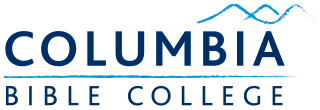
Wichita State University (WSU) is a public research university in Wichita, Kansas, United States. It is governed by the Kansas Board of Regents. The university offers more than 60 undergraduate degree programs in more than 200 areas of study in nine colleges. The university's graduate school offers more than 50 master's degrees in more than 100 areas and a specialist in education degree and 13 doctoral degrees. It is classified among "R2: Doctoral Universities – High research activity".

The University of Denver (DU) is a private research university in Denver, Colorado, United States. Founded in 1864, it has an enrollment of approximately 5,700 undergraduate students and 7,200 graduate students. It is classified among "R1: Doctoral Universities – Very high research activity". The 125-acre (0.51 km2) main campus is a designated arboretum and is located primarily in the University Neighborhood, about five miles (8 km) south of downtown Denver.
Bethel University is a private Cumberland Presbyterian-affiliated university in McKenzie, Tennessee with satellite campuses in Jackson, and Paris. It is accredited to award degrees up to the master's level.

The Alabama School of Mathematics and Science (ASMS) is a public residential high school in the Midtown neighborhood of Mobile, Alabama. ASMS is a member of the National Consortium of Secondary STEM School (NCSSS). It graduated its first class in 1993.

Elmira College is a private college in Elmira, New York. Founded as a college for women in 1855, it is the oldest existing college granting degrees to women that were the equivalent of those given to men. Elmira College became coeducational in all of its programs in 1969. As of 2023, the college has an enrollment of approximately 657 students.

Goshen College is a private Mennonite liberal arts college in Goshen, Indiana. It was founded in 1894 as the Elkhart Institute of Science, Industry and the Arts, and is affiliated with Mennonite Church USA. The college is accredited by the Higher Learning Commission and has an enrollment of 824 students. While Goshen maintains a distinctive liberal Mennonite worldview and Mennonites make up 30 percent of the student body, it admits students of all religions.

Fresno Pacific University (FPU) is a private Christian university in Fresno, California, United States. It was founded as the Pacific Bible Institute in 1944 by the Pacific District Conference of U.S. Conference of Mennonite Brethren Churches. The university awarded its first Bachelor of Arts degree in 1965. The first master's degree program was introduced in 1975.

Pittsburg State University is a public university in Pittsburg, Kansas, United States. It enrolls approximately 7,400 students and is a member of the Kansas Board of Regents.

WVU Potomac State College is a public college in Keyser, West Virginia. It is part of the West Virginia University system. Potomac State College is located approximately 90 miles east of West Virginia University's campus in Morgantown, West Virginia.

The Alexanderwohl Mennonite Church of Goessel, Kansas, is a congregation affiliated with Mennonite Church USA. The congregation has a continuous history dating from 16th-century Europe.

Tabor College is a private Mennonite college in Hillsboro, Kansas, United States. It is owned and operated by the U.S. Conference of Mennonite Brethren Churches and adheres to Anabaptist doctrine. There were 594 students enrolled at the Tabor College Hillsboro campus for the Fall 2014 semester. Total enrollment, including the Tabor College School of Adult and Graduate Studies in Wichita, was 766.

Hesston College is a private college in Hesston, Kansas, United States. It is associated with the Mennonite Church USA and has an enrollment of about 400 students who typically come from about 30 states and 15 other countries.

Bluffton University is a private Mennonite university in Bluffton, Ohio. It is accredited by the Higher Learning Commission, with three programs that have earned programmatic accreditation: education, nursing and social work. The university has more than ninety majors, minors, and interdisciplinary programs, and eighteen NCAA Division III athletic teams and a co-ed esports team.
The Mennonite Historical Library (MHL) is considered the world's most prominent and complete collection of resources and artifacts pertaining to Mennonites and related Anabaptist groups. It is housed in the Harold and Wilma Good Library on the campus of Goshen College in Goshen, Indiana. The specialty library was founded in 1906 under the guidance of Harold S. Bender and Ernst Correll. Elizabeth Miller is the current director.
Wadsworth Institute was a Mennonite seminary in Wadsworth, Ohio, from 1868 to 1878. Officially named the "Christian Educational Institution of the Mennonite Denomination", it accepted men aged 18 to 35 for a three-year program centering on biblical studies and other topics relevant to training pastors and mission workers. Starting in 1876, women were accepted as day students. Classes were primarily taught in German and some in English.

Anabaptist Mennonite Biblical Seminary (AMBS) is an Anabaptist Christian seminary in Elkhart, Indiana, affiliated with Mennonite Church USA and Mennonite Church Canada. It was formerly known as Associated Mennonite Biblical Seminary until its name was changed in 2012.

Columbia Bible College (CBC) is an evangelical Mennonite Bible College in Abbotsford, British Columbia, Canada. It is affiliated with two regional Mennonite conferences, British Columbia Mennonite Brethren and Mennonite Church British Columbia. Columbia is accredited by the international Association for Biblical Higher Education (ABHE), and is registered with the British Columbia Private Career Training Institution Association (PCTIA).

A threshing stone is a roller-like tool used for the threshing of wheat. Similar to the use of threshing boards, the stone was pulled by horses over a circular pile of harvested wheat on a hardened dirt surface, and the rolling stone knocked the grain from the head of wheat. The straw was removed from the pile and the remaining grain and chaff was collected. By a process called winnowing, the grain was tossed into the air to allow the chaff and dirt to be blown away, leaving only the grain.
The Mennonite Church USA Archives was founded in 2001 under the denominational merger of the (old) Mennonite Church and the General Conference Mennonite Church. Prior to 2001, the two largest Mennonite denominations maintained separate archives: the Archives of the Mennonite Church, located on the Goshen College campus, housed materials pertaining to the (old) Mennonite Church, while the Mennonite Library and Archives on the Bethel College campus held the records of the General Conference Mennonite Church.

Polingaysi Qöyawayma, also known as Elizabeth Q. White, was a Hopi educator, writer, and potter.



















